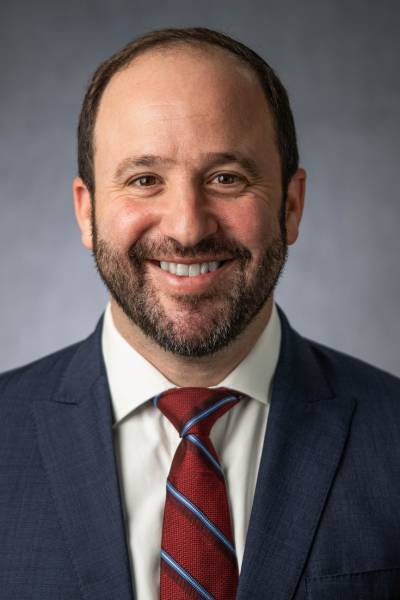MSPB Appeals vs. EEO Complaints: Choosing the Right Path for Federal Employees
Federal employees may have several potential avenues to challenge unlawful or unfair workplace actions. Two of the most common are civil service appeals filed with the Merit Systems Protection Board (MSPB) and EEO complaints made through the Equal Employment Opportunity process. Understanding the scope, timelines, and procedures of each is essential. This guide explains what MSPB appeals cover, how they differ from EEO complaints, how to file either type of action effectively, and when to seek legal representation. What Are MSPB Appeals? Federal employees have the right to challenge certain employment actions before the Merit Systems Protection Board (MSPB), an independent agency that ensures fairness in federal employment, under governing civil service laws. The MSPB only has the legal ability, called jurisdiction, to hear and decide appeals of certain types of agency actions involving certain categories of federal employees. Understanding which types of agency actions can be appealed can help employees better protect their rights and pursue the remedies they deserve. One of the most frequent types of MSPB appeals involves adverse actions. These include removals from federal service, suspensions lasting more than 14 days, demotions, and reductions in pay. Such actions can have a lasting effect on an employee’s career and financial stability. The MSPB plays a critical role in reviewing whether the agency’s decision was justified and whether proper procedures were followed. The MSPB also hears cases involving performance-based actions. These actions typically involve removals or demotions that agencies base on claims of unacceptable performance. For federal employees, appealing to the MSPB can provide an opportunity to challenge whether the agency properly documented performance issues and applied the standards fairly. Another significant category of appeals involves whistleblower retaliation, often filed as Individual Right of Action (IRA) appeals. Before bringing an IRA appeal to the MSPB, employees must first seek relief from the U.S. Office of Special Counsel (OSC). If the OSC does not resolve the matter, it will issue the employee an Individual Right of Action (IRA) letter, allowing the employee to pursue an MSPB appeal, alleging that the agency retaliated against them for engaging in protected whistleblowing activity. These cases are critical for safeguarding the rights of federal employees who speak out against violations of law or policies, misconduct, fraud, waste, or abuse. Beyond adverse and performance-based actions, the MSPB has jurisdiction over other appealable matters. These may include certain reduction-in-force (RIF) actions, furloughs, Office of Personnel Management (OPM) retirement determinations, and specific suitability determinations affecting an employee’s ability to serve in federal positions. The MSPB also has original jurisdiction (meaning over a complaint, rather than over an appeal of an agency action), over a few types of highly specialized matters, including adverse actions taken against administrative law judges (ALJs). Each of these MSPB matters can have unique requirements and procedures, making it essential for employees to understand their options from Day 1. In every MSPB case, the central questions remain the same: “Did the agency have valid legal and factual grounds for its action? And, did agency management comply with the required procedures?” What Are EEO Complaints? An Equal Employment Opportunity (EEO) complaint addresses discrimination, harassment, or retaliation based on protected characteristics (race, color, religion, sex, pregnancy, gender identity, sexual orientation, national origin, age 40+, disability, or genetic information). EEO also covers denial of reasonable accommodation and reprisal for engaging in EEO activity. The EEO process investigates whether unlawful discrimination occurred and provides remedies tailored to civil rights violations. Despite the differences between the two processes, facts grounding an EEO complaint can sometimes overlap with bases for an MSPB appeal. Key Differences Between MSPB Claims and EEO Complaints Issue MSPB Appeals EEO Complaints Jurisdiction Appeal of agency actions (e.g., removals, suspensions 14+ days, demotions, whistleblower reprisal, retirement issues). Allegations of discrimination, harassment, retaliation, or denial of accommodation based on protected status. Eligibility Generally, non-probationary competitive service employees, excepted service employees who have completed 2 years of service, some “hybrid” Title 38 Veterans Administration employees, certain preference-eligible U.S. Postal Service employees with 1 year of service Any federal employee or applicant for federal employment Deadline Generally, the MSPB appeal must be filed within 30 days from the effective date of the action or receipt of the decision, whichever is later. Must make initial contact with an agency EEO Counselor within 45 days of the alleged discriminatory event. If the informal process with the EEO Counselor doesn’t lead to a resolution, must file a formal EEO Complaint within 15 days. Procedure Filed electronically via MSPB’s e-Appeal Online; case proceeds before an MSPB Administrative Judge with discovery, conferences, hearing, and decision. Begins with informal counseling, followed by a formal complaint, investigation, possible EEOC hearing, and final decision. Possible Remedies Reinstatement, back pay, benefits restoration, correction of records, attorney fees (when authorized). Same as MSPB plus compensatory damages for proven discrimination (subject to caps), including emotional distress and other non-pecuniary damages. How to Effectively Pursue an MSPB Appeal Filing EEO Complaints: Core Steps Choosing Between MSPB Claims and EEO Complaints Consideration MSPB Claims EEO Complaints Nature of the Issue Best suited for appealable actions such as removals, suspensions over 14 days, demotions, or reductions in pay. Focuses on claims of discrimination, harassment, or retaliation based on protected characteristics such as race, sex, age, disability, or religion. Available Remedies Remedies may include reinstatement, back pay, correction of personnel records, or reversal of adverse actions. Remedies may include compensatory damages including emotional distress damages, back pay, policy changes, or workplace accommodations. Deadlines Strict 30-day deadline from the effective date of the agency’s action to file an appeal. Strict 45-day deadline from the date of the alleged discrimination to initiate contact with an EEO counselor. Mixed Case Strategy If an appeal involves both an appealable action that would give the MSPB jurisdiction and EEO discrimination allegations, an unfavorable MSPB decision may be appealable to the EEOC or to federal district court. If a complaint involves both an appealable action that would give the MSPB jurisdiction and EEO discrimination allegations, you will not be...
Read More about MSPB Appeals vs. EEO Complaints: Choosing the Right Path for Federal Employees






